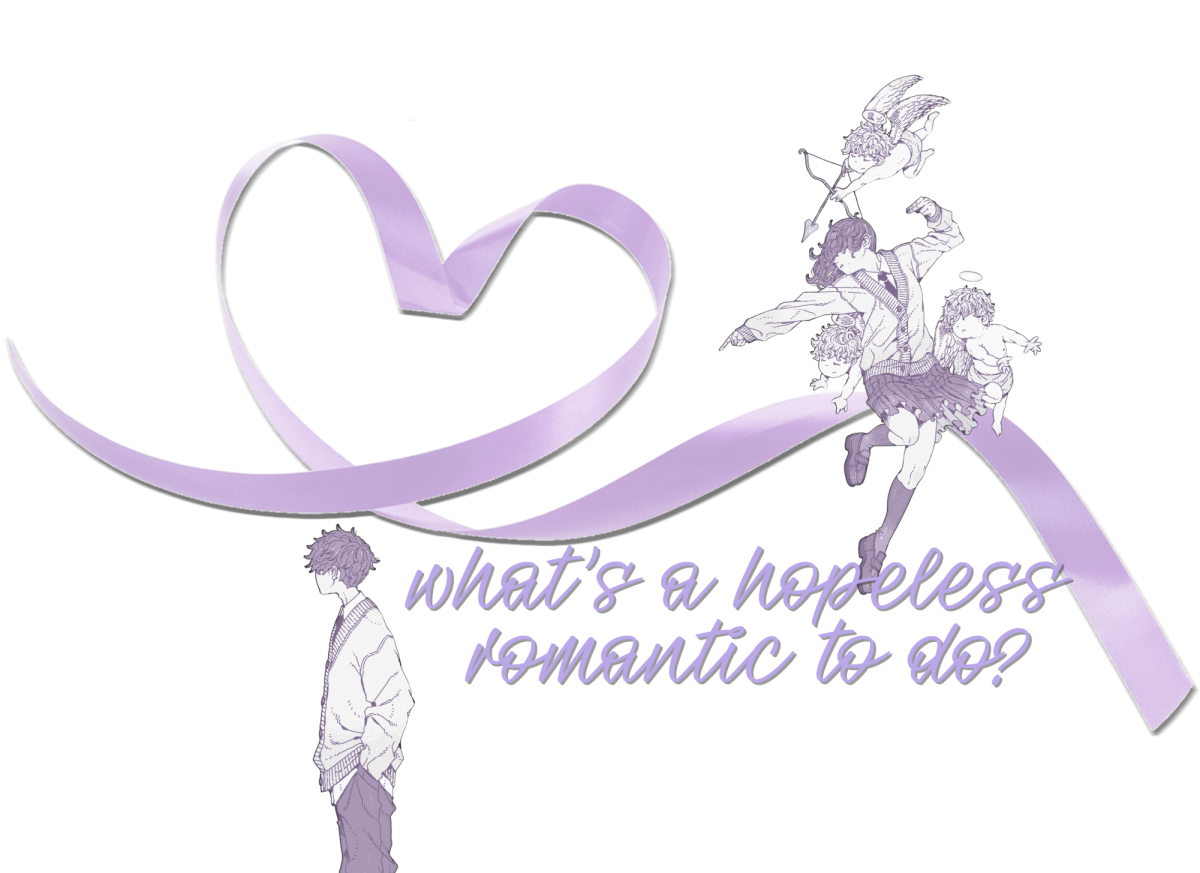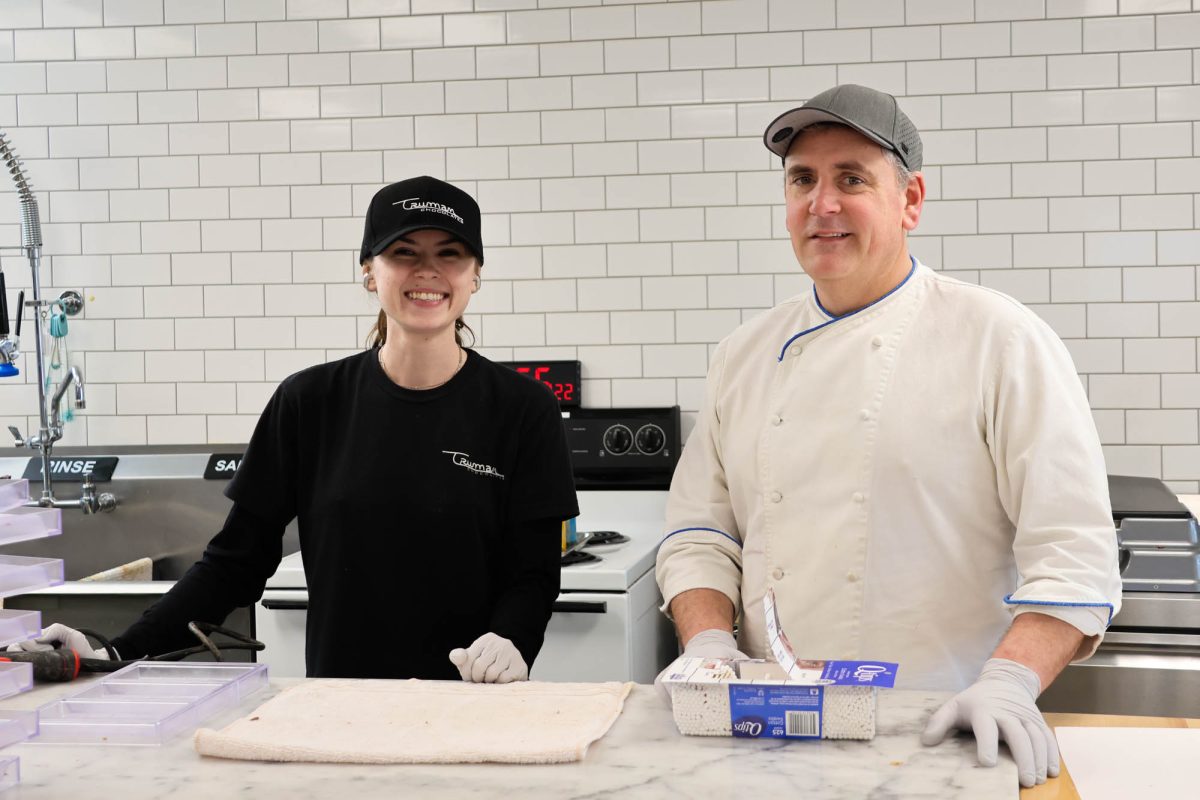Love is the only sane and satisfactory answer to the problem of our lonely existence.
In fact, we’re starved for it, consuming endless movies, romance novels and trashy songs to get some semblance of what it’s like. But when it comes to actually finding love, popular culture strategically shifts the focus on making yourself more loveable instead of the act of loving.
For instance, how would you find someone to go steady with?
Improve your physical appearance with a glow-up? Make your whole life a performance and aestheticize your social media pages? Spend hours choosing the best pictures of yourself and ChatGPT-ing your hobbies and interests for dating apps?
When just about every icon on television or in music videos wins the affection of their sweetheart after they have some sort of glow-up montage, it’s no wonder our first instinct is to focus on how we can be more attractive and loveable. Aladdin didn’t get the girl until he pulled up in a magical new whip, and even Cinderella only got Prince Charming to notice her after she had the prettiest gown at the ball.
The message is clear: When you look your best, finding love will be a success. But in meticulously curating the look and idea of You — not out of concern for your own happiness, but rather for how “valuable” of a partner you can exchange yourself for — all you become is a commodity.
Our obsession over shallow body goals and aesthetics leads us to project on our potential partners. We list off enough arbitrary red and green flags to fill up a grocery list, reducing the complexities and nuances of unique individuals to check boxes. Narratives of “standards” and “never settle” treat the idea of a romantic partner as a bargain to maximize what they can provide for you.
How romantic.
Philosopher Erich Fromm describes this relationship culture as the “personality market,” in which relationships are only transactions of one commodified personality for another.
Endorphins, sparks and convenience: You’re in love. But if you and your partner are just commodities of similar value on the personality market, what’s to stop the relationship from failing when a better product comes along?
Obviously, though, real love is out there. Right? What about Ross and Rachel? Katniss and Peeta? Let’s switch mediums — how about Jane Austen’s “Pride and Prejudice” or the iconic “Love Story” for all you Swifties?
Fiction attempts to simulate real life, but after a certain point, we start to frame our real lives in relation to these pieces of media and forget that it’s supposed to be the other way around. As Olisunvia puts it, “We see people have magical … moments on screen and then build expectations of having the same magical feeling in real life.” We draw from characters that aren’t real and say, “I want a love like theirs.” The only problem is, “they” aren’t real.
So, not only does popular culture reduce relationships to transactions, but it causes us to base our notions of love on restrictive character tropes of people who never even existed.
What’s a hopeless romantic to do?
Let’s go back to why you want love in the first place. Do you want someone to check your boxes? Do you want a convenient bargain? Do you simply want to feel less alone?
Love isn’t a noun, something to “fall into” if one is lucky. Rather, it’s a verb, an active striving, the aim of which is the “happiness, growth, and freedom of its object;” an art that requires constant effort to master, and not just when it’s convenient. That is to say, love isn’t something that just happens, it’s a choice you make — an active choice to care about someone for who they are and not for who you want them to be.
Stop looking at people as products, determining whether someone’s characteristics, intrinsic or extrinsic, meet your arbitrary standards like an ingredients label on a soup can. If you find “love” based on a checklist of yeses and nos, then you don’t actually love your partner as a person — you just love an extension of your own ego.
If you begin a search for love before you’re even happy with who you are already, you’re never going to be able to see people for anything other than an antidote to your insecurities. If you want to change, don’t do it just because you think it’ll make you more lovable. Turning yourself into a better product won’t make you happy so much as make you forget that you aren’t.
So don’t glow up into a new you. Instead, grow as a better you.
Only then can we shift our attitude from how we can be more loved to how we can become better at loving. At the end of the day, love is not about receiving the benefits of a partner. It’s about giving — ultimately, giving yourself.
Isabella Garcia is an economics junior and the assistant opinion editor for The Battalion.

















Hayley • Aug 23, 2024 at 12:20 pm
Such a good article!